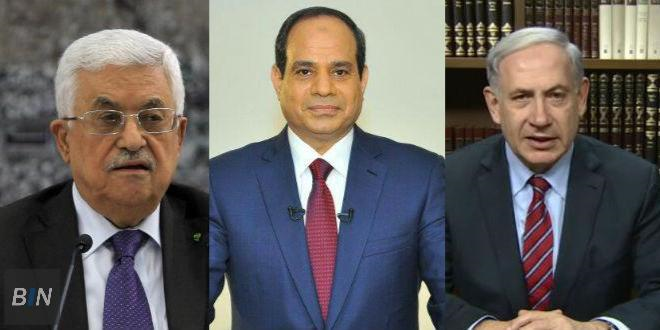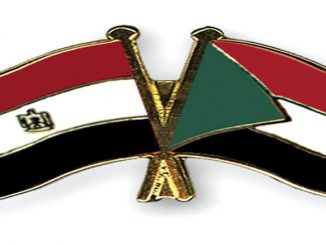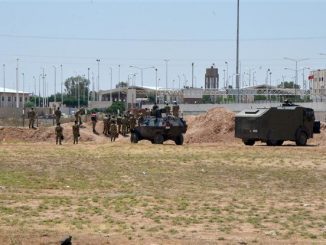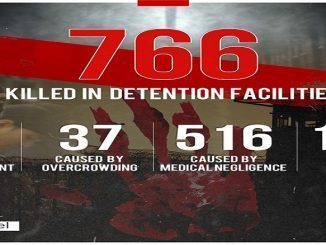
An International peace conference will be held in Paris to push the peace process and to advance a two-state solution in the Middle East.
Foreign ministers of 26 countries including US Secretary of State John Kerry will travel to Paris Friday ahead of the conference. Countries from the European Union, Asia along with other Arab countries as Egypt, Jordan, and Saudi Arabia will attend Paris summit on Friday.
According to The Wall Street Journal, both the Israelis and the Palestinian officials have agreed that Abdel Fattah al-Sisi will play a mediating role to restart the peace process ahead of the Paris peace conference on Friday.
French officials say the conference will aim at drawing up a list of incentives for the parties as part of a possible deal. In the same context, France is looking forward to hosting another conference this year that will include both the Israeli and Palestinian leaderships if the officials make progress.
Palestinian officials say that the Palestinian Authority President Mahmoud Abbas has persuaded al-Sisi to play a key role to bring the French initiative into action. Palestinian officials also hope that the multilateral French initiative can also successfully achieve peace in the same way the Iranian nuclear negotiations achieved a rapprochement between Iran and the West.
On the other hand, Israeli officials have held discussions with al-Sisi about reviving an Arab states-led initiative to solve the Israeli-Palestinian conflict.
Al-Sisi as a broker
The Wall Street Journal report cited Israeli and Palestinian officials as saying that, “They believe that al-Sisi can act as an honest broker between the two sides.” They added that Egypt can play this role as the security cooperation between Egypt and Israel is at unprecedented levels and at the same time al-Sisi stated his commitment to establishing a Palestinian state.
In the same path, al-Sisi’s chief spokesman Alaa Youssef said that al-Sisi is eager to take a leading role “to re-initiate the peace process and give all kinds of support.”
However, Egypt is ready to play a mediating role accepted by the Israelis, “But the two sides differ on the nature of the Egyptian role,” said WSJ. The Israeli officials are looking forward to gaining more benefits from the Egyptian role, especially in regard to the normalization process. According to WSJ, “Israeli officials hope al-Sisi will push Arab states, including Egypt, Jordan, Saudi Arabia and the other Gulf States, to agree to normalize economic and diplomatic relations with Israel while it takes positive steps on the ground toward peace with the Palestinians.”
However, “Israeli officials favor direct negotiations with the Palestinians and the involvement of the regional neighbors in a separate initiative,” said Dore Gold, the director-general of Israel’s foreign ministry. Gold believes that the French conference is a terrible mistake. He added, “An Arab regional initiative supports the idea of direct negotiations between Israel and the Palestinians. At the same time, it allows Israel and the Arab states to explore normalization.”
On the other hand, some analysts believe that Israel is maneuvering to push away the French initiative despite Paris summit. Netanyahu said the Arab peace initiative “includes positive elements that can help revive constructive negotiations with the Palestinians.” WSJ also reported that Palestinian officials say that Netanyahu is trying to gain support for a competing initiative to the one put forward by France to avoid making concessions in a future peace deal. Nabil Shaath, a senior aide to Abbas said that “Netanyahu is trying to go around the French initiative to try to create a competing initiative to it,” adding, “The French initiative is the only game in town now.”
“Al- Sisi’s chief spokesman Alaa Youssef declined to say whether al-Sisi would prefer to revive the Arab peace initiative to the French proposal,” said the WSJ.
Sisi-Israeli ties
In the recent weeks, several incidents have occurred that infer that al-Sisi was in a close contact with the Israeli part concerning the peace process and that even al-Sisi’s speech on warm peace was coordinated earlier with Israel, Tony Blair and the United States of America. Netanyahu’s office has communicated with Abdel Fattah al-Sisi on pursuing peace as the Israeli prime minister negotiated to bring the pro-peace Zionist Union party into his governing coalition.
Tony Blair, the former U.K. Prime Minister, acted as an interlocutor between Netanyahu, al-Sisi and the Zionist Union, led by Isaac Herzog. In the recent months, Blair traveled between Jerusalem and Arab capitals to promote a resolution to the Israeli-Palestinians conflict. “Blair encouraged al-Sisi to make a speech in May during the Israeli political negotiations in which the Egyptian president called on all sides to promote a resolution to the Israeli-Palestinian conflict, and commended both the Arab and French peace initiatives,” said the WSJ.
However, the talks have been pivoted to discussions with the Avigdor Lieberman and his Yisrael Beiteinu party to bolster his coalition after talks between Netanyahu and Herzog had broken down. But some Israeli political analysts have said that there are concerns and fears that the appointment of Lieberman as the defense minister would move Israel away from peace. Lieberman is known for his severe attacks and statements as toppling of Hamas movement in the Gaza Strip and that Abbas deals in “diplomatic terror”.
However, Lieberman appeared to try to decline those fears as he was sworn into office at the Israeli parliament on Monday. Lieberman praised al-Sisi’s speech and the Arab initiative. He also agreed with Netanyahu’s statement on the Arab initiative saying, ”I think that al-Sisi’s speech was very important and has created a genuine opportunity.” Lieberman added, “I absolutely agree that the Arab [Peace] Initiative also has some very, very positive elements that enable a serious dialogue with all our neighbors in the region.



